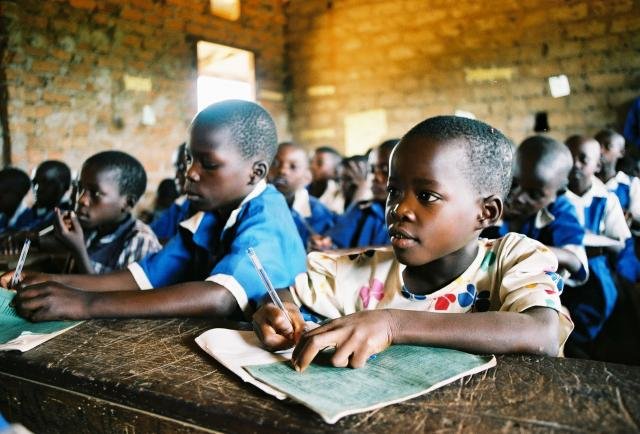In Cameroon- the country foreigners have described as ‘Africa in miniature’ because of its bustling diversity in all aspects- English and French are the official languages. The nation is home to 230 languages, yet 46% of the population only speaks French. In the capital city of Yaounde, there are plenty of French and English schools. But how many of these schools teach an indigenous language? Very few- perhaps as many as you could count on one hand. While I lived in the country, it was very common for many of my Cameroonian friends and acquaintances in school to not speak a lick of their village’s language.
Of course, Cameroon is not unique in its situation. In the ‘developing world’, there is the common perception that English is the only language that you must learn in order to be successful. Globalization has resulted in the English language becoming one of the most dominant languages in the world. From Mcdonalds and Coca-cola to the international stardom of acclaimed English-speaking pop stars like Michael Jackson and Beyonce, it’s quite difficult to find someone in today’s world who doesn’t speak nor understand at least a word of English.
Globalization has thus resulted in the interconnectedness of cultures across the world. However, it has also resulted in the negligence of incorporating indigenous languages into education systems. Of course, we know that there are many benefits to being multilingual, such as the ability to easily transcend international borders whilst remaining able to communicate with people across different cultures.
But the thing is, language is one of the most vital elements of culture; language IS culture. And the fact that English and French remain the dominant language of the education system in many former African colonies is a disturbing reminder that the effects of colonialism are well and alive.
https://www.instagram.com/p/BgRwMaBBSMl/?tagged=ethiopianschool
And there are many Pan-African leaders who have also refuted the policy of the education system being continuing to revolve around colonial languages. In a 2014 speech, South Africa’s current President Jacob Zuma said that “Our children should be proud of our 11 languages and should learn to speak as many as possible.” Referencing South Africa’s violent past with Apartheid, Zuma continued, “”It is up to educators to produce these new South Africans… from the ashes of our tragic past.”
It can be argued that the education system in former African colonies continuing to be taught in the language of the colonizers is a form of linguistic imperialism and forced assimilation- especially if children go on to complete higher education.The reality is that the chances of African parents teaching their children their village’s language diminishes if they have completed their entire life of schooling in a colonizer language. I know far too many people with African parents who are my age who can admit that they do not speak their village’s language.
Of course, we can’t ignore the challenges that may arise when teaching indigenous languages in schools. In countries with hundreds of native languages, how do we choose which one to teach? This would be especially difficult in Cameroon, which is home to 230 languages. And picking one language to teach out of all 230 would most certainly further ostracize ethnic minority groups.
But then you see the South African government rendering Mandarin the second additional language to be taught in schools as opposed to an indigenous African language, and it makes you wonder whether our own governments are even invested in preserving African culture.
The reality is that it is time for our African governments to implement an education system that honors our own culture and history instead of puppeting our former colonizers, because when nearly half the population can only speak the language of the imperialists, it’s an issue. Pan-African unity means many things, one of which involves preserving our culture in the face of external forces continuing to try and exploit our people and our land.


